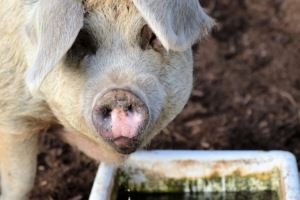News
Lowest number of pigs slaughtered in Denmark in a quarter of century
This article is more than 7 years old.
Danish slaughterhouses fighting to halt downward trajectory

Will they turn the tide in 2018? (photo: Pixabay)
Last year 17.3 million pigs were butchered across Denmark – almost a million fewer than in 2016 and the lowest number since 1992.
The industry claims that worn-down stalls in one of the primary reasons for the decline in the slaughter of pigs, but it is hopeful it can buck the negative trend this year thanks to recent support from the government.
“It takes time to turn a development like this around. The farmers have been hit hard since 2008 by the financial crisis and the industry has lost a lot of money since 2000,” Nicolaj Nørgaard, the head of pig farmer advocacy group Danske Svineproducenter, told DR Nyheder.
“But I expect we’ll butcher more pigs in 2018 than we did in 2017.”
READ MORE: Danish agriculture heading for the doldrums again
A critical year
Aside from a new public investment fund that financially support farmers to establish new stalls, the nation’s slaughterhouses – led by Danish Crown – have launched a new strategy that aims to ensure Danish slaughterhouses get an advantage compared to their European colleagues.
The food product association NNF, which represents employees working in the slaughter industry, is disappointed by the 2017 figures, but admits that some of the changes made recently need time to produce results.
The good news is that despite fewer pigs being butchered last year, most farmers made a profit in 2017. However, a number of economists are making dark predictions for the future of the Danish agricultural sector.










































